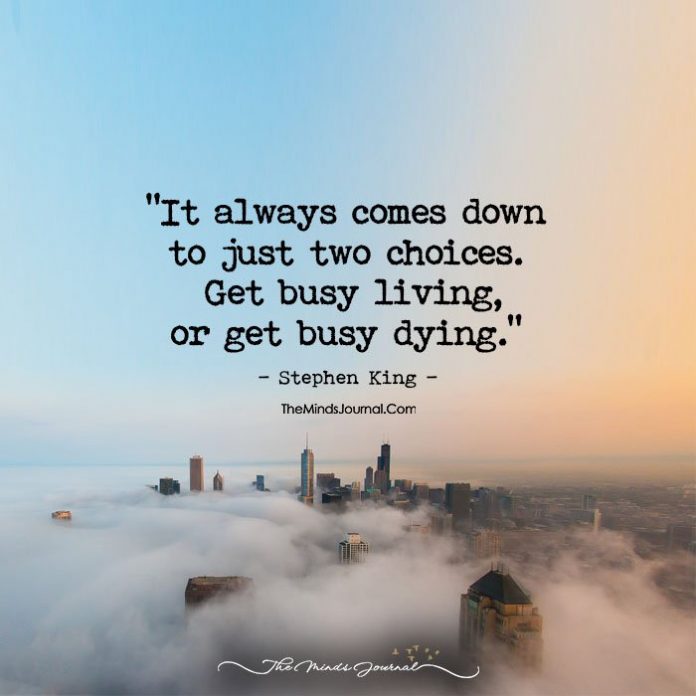Workaholism is an addiction that is plaguing the average worker in the U.S. Research shows that almost half consider themselves “workaholics,” putting in four hours of unpaid overtime per week, and spending another four hours just thinking about work.
How can professionals manage their time in a more balanced way and push back to establish more work/life balance?
To learn more about this, I caught up with Dr. Ross Nelson, a licensed clinical psychologist. Nelson is a Behavioral Health Program Consultant at Crossover Health and a licensed clinical psychologist with over 12 years’ experience providing therapy, consultation, and leadership across diverse healthcare systems ranging from innovative startups, government agencies, large for-profit healthcare organizations, and non-profit mental health clinics. Nelson specializes in Cognitive-Behavioral Therapy and is devoted to shaping and scaling next-generation mental healthcare systems.
Prior to establishing his own practice, Nelson served as behavioral health clinical psychologist at Crossover Health, providing healthcare to employees of large technology companies in Silicon Valley.
He also served as a psychologist at Kaiser Permanente, providing expertise, guidance, consultation, department-wide didactic training, and treatment for individuals overcoming anxiety disorders and stress.
Here’s what he shares about workaholism that we need to know:
Ross Nelson: While the American Psychological Association does not yet recognize “workaholism” as a clinical condition, the phenomenon has been studied and well researched since the term was first coined in 1971. Consequently, we are aware of primary indicators of workaholism. These include:
- Being a workaholic means working more than what is reasonably expected (as established by the job requirements and individual economic needs) despite negative consequences (i.e. relationships, health, social life, or otherwise)
- Having persistent and frequent thoughts about work when not working
- Feeling compelled to work due to internal pressures without external evidence to support this compulsion
Related: Signs You Use Busyness As A Coping Mechanism (& How To Slow Down)
Caprino: Wow, by those standards, that’s almost every professional I work with and coach! Who is most susceptible to becoming a workaholic?
Nelson: In general, workaholism affects men and women equally and is not correlated to education level, marital status, or part-time versus full-time employment. Research shows that of the Big Five personality traits (extraversion, conscientiousness, agreeableness, openness to experience, and neuroticism), people high on conscientiousness, extraversion, neuroticism, and openness may be more susceptible to becoming workaholics. Additionally, people who are achievement-oriented, perfectionistic, or show compulsive tendencies may also be at risk for workaholism.
It’s important to note that technology in the workplace may have a role to play in the prevalence of workaholism.
For example, the boundaries between work and home tend to blur with company-provided computers, emails pushed to smartphones and late-night text messages from bosses. Sadly, it’s common that workplaces with high-stakes positions, high salaries, pressure, and demand don’t exactly promote “work-life balance.”

Caprino: Yes, this has parallels to what I call “perfectionistic overfunctioning” which can be so damaging to our health, happiness, success and well-being. But have you found that workaholism can ever be a good thing?
Nelson: Yes, if someone is lonely, unhappy in their relationships, does not enjoy their hobbies or free time, or generally dislikes their life outside of work, then being a workaholic can be wonderful (please note tongue-in-cheek tone). Otherwise…no, I’m sorry. I can’t possibly recommend being a workaholic.
Some researchers have proposed that there can be short-term benefits, such as praise from bosses, but the long-term consequences (insomnia, stress, depression, anxiety, marital problems, decreased social life, etc.,) clearly outweigh the potential rewards received. To drive this point home, recently in Japan, the term “karoshi” has been surfacing, which is used to describe when someone has a heart attack, stroke, or commits suicide as a result of work-related stress.
It’s important not to confuse “engagement” and “workaholism.” While workaholism is generally believed to be pathological, work engagement is, indeed, a good thing. Engagement distinguishes itself as an employee’s positive attitude and feelings toward their job. It is a healthy form of heavy work involvement and does not include the guilt associated with not working.
Caprino: What can employees do to survive work environments that encourage workaholism?
Nelson: It’s become increasingly common for not only individuals to treat workaholism as a “badge of honor,” but for companies or even entire industries (i.e. technology, finance, and entrepreneurism) to promote the “out-grind, out-hustle, and out-work everyone” mindset.
Related: 20 Signs You’re Experiencing Soul Loss
To “survive” such an environment, I recommend employees:
Advocate:
Seek out opportunities to speak with your manager about their expectations for the job as well as your desire for balance. Vulnerability and honesty can go a long way in communicating with a manager who may be unaware of the strain you’re experiencing. If your manager seems to want email responses in the evenings and weekends, start a dialogue about it, and if the emails are not noted as “urgent,” simply ignore them until the next workday.
Reflect and Prioritize:
Research has indicated that excessive workers are less effective, have worse health, and in fact, make more errors than their more balanced counterparts. Reflect and remind yourself of this fact if you find yourself working in an environment that encourages workaholism.
Remember too that there will always be more to do, so you must prioritize and draw the line somewhere. In setting your own boundaries, you may even find yourself outperforming your workaholic colleagues.
Related: How To Find Your Balance and Peace of Mind – According To Your Zodiac Sign
Change:
If your job environment doesn’t fit your working style and interests, maybe it’s time to seek out a new employer that encourages reasonable work-life balance. Even if it means you need to take a pay cut, ask yourself if the freedom and stress relief is worth it in the long run.
Caprino: In my career coaching work, and as a former marriage and family therapist, I address workaholism in key ways aimed at helping the client understand their drive (and guilt and fears around) perfectionistic over-functioning, and explore new behaviours, mindsets and habits that help them shift away from doing more than is necessary, appropriate and healthy and trying to get an A+ in all of it. I’m interested in how you treat workaholism therapeutically?
Nelson: There are a number of evidence-based methods and techniques used to combat workaholism. Traditionally, a therapist offers behavioral strategies, including those recommended below, and helps people learn how to combat negative/irrational thoughts and feelings (i.e. guilt, fear, and anxiety) prevalent among workaholics.
Related: 30+ Dalai Lama Quotes to Enrich Your Life With Wisdom
Here are 5 behavioural strategies to begin treating workaholic tendencies:
1. Shut It Down:
Commit to gradually cutting down the number of hours worked each week. For example, commit to leaving work at a certain time each day or to work 5 days per week.
2. Release Control:
Practice letting go of control by delegating work, forgoing unimportant tasks, and letting things be less than “perfect.”
3. Set Healthy Limits:
Avoid saying “yes” to every work request and taking work home with you. Use vacation time and take small breaks throughout your day.
4. Engage in Hobbies:
Schedule daily recreational activities. Take up a new exercise class, join a meetup group, find weekend activities taking place in your city, go on a road trip, or engage in a hobby you liked when you were younger, but may have lost touch with.
5. Connect With Others:
Offer yourself another opportunity to distance yourself from work, while also engaging in the pleasure of human connection by spending time with friends and family.
Are You A Workaholic? Leave your thoughts about Workaholism in comments below.
Written by: Kathy Caprino
Originally appeared on: Kathy Caprino









Leave a Reply
You must be logged in to post a comment.